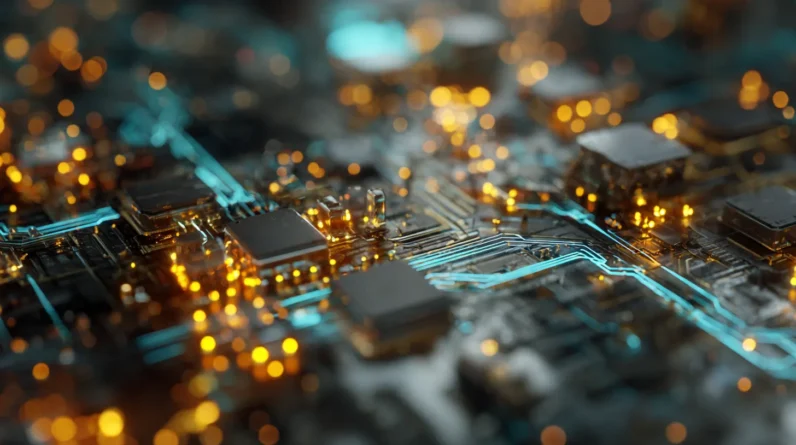
We’re finding that smart devices can rewire our brains faster than social media due to their constant presence and frequent interactions. This leads to cognitive overload, mental fatigue, and lasting changes in brain function and structure. We’re seeing significant impacts on our brain’s neural pathways and plasticity. As we explore this topic further, we’ll uncover more about how smart devices are reshaping our brains.
The Presence of Smartphones and Cognitive Impairment
As we examine the relationship between smartphone presence and cognitive impairment, it’s clear that our frequent interactions with these devices can have profound effects on our cognitive abilities. We’re experiencing cognitive overload, leading to mental fatigue. The mere presence of smartphones reduces available working memory capacity, even when turned off. This constant distraction consumes limited cognitive resources, lowering basal attention levels. Consequently, our attentional performance declines, and cognitive capacity decreases. We’re subconscious of the cognitive cost, but it’s evident: persistent exposure to smartphone presence can lead to chronic cognitive costs, ultimately affecting productivity and cognitive function.
Neurological Effects of Smartphone Restriction
Because we’re constantly exposed to smartphones, restricting their use can have profound effects on our brain activity. We observe changes in brain chemistry and neural adaptation after restriction. Key effects include:
- Altered brain regions involved in reward processing
- Decreased craving-related brain activation
- Modulation of neural pathways associated with addiction. These changes indicate that our brains can rapidly adapt to reduced smartphone use, impacting brain chemistry and behavior. By restricting smartphone use, we can influence neural adaptation and potentially improve our brain function.
Electronic Devices and Their Impact on Brain Function
We’re witnessing a profound impact of electronic devices on our brain function, driven by the pervasive presence of smartphones and other digital technologies in our daily lives. As we analyze digital trends, it’s clear that excessive screen time affects brain development. Cognitive performance and attentional capabilities are diminished, while structural brain changes, such as cortical thinning, occur with high screen exposure. These effects can impede brain development, influencing emotional and social brain functions. We must consider how digital trends shape our brains, acknowledging the potential risks to brain development and overall cognitive health. This impact is a critical concern.
Digital Media Induced Brain Plasticity
Digital media’s impact on our brains is profound, and it’s clear that intensive use leads to high brain plasticity, reshaping both functional and structural connectivity within the brain. We’re experiencing digital overload, leading to brain modification. Key effects include:
- Altered neural pathways
- Changed cognitive modes
- Increased stress and anxiety. We must consider these changes to understand digital media’s influence on our brains, as they can lead to long-term brain modification and potential cognitive consequences.
Internet Training and Brain Activity Changes
As we explore into the effects of internet training on brain activity, it becomes clear that brief exposure to internet searches can substantially alter neural activation patterns. We observe significant increases in brain activity in internet-naive adults after brief training. This change reflects brain plasticity, where cognitive training enhances neural efficiency. Internet search tasks engage brain networks controlling decision-making and memory, stimulating regions implicated in working memory and executive function. This rapid adaptation demonstrates the potential of internet training as a form of cognitive training, offsetting age-related cognitive decline and improving cognitive processing efficiency through enhanced brain plasticity.
Smartphone Use and Addiction Like Responses
Smartphone use has become a ubiquitous part of our daily lives, and it’s clear that brief exposure to these devices can have profound effects on our behavior and cognition. We’re witnessing phone dependency, with excessive screen time leading to addiction-like responses. Key factors include:
- Frequent checking
- Elevated anxiety
- Decreased productivity
We recognize the impact of screen time on our lives, contributing to phone dependency and related issues. As we consider our relationship with smartphones, it is crucial to acknowledge these effects and their implications for our well-being.
Rewiring the Brain With Smart Device Use
Our brains undergo significant changes in response to intensive smart device use, with frequent exposure altering functional and structural brain connectivity. We’re seeing a rise in digital dependency, which affects brain development. As we use smart devices, our brains rewire, adapting to new patterns of use. This rewiring can lead to changes in cognitive modes, prioritizing skills linked to device use. We’re experiencing a shift in brain activity, driven by digital media engagement, which can impact our attention, cognitive control, and emotional responses. This highlights the complex relationship between smart device use and brain development.
Conclusion
We’re unwittingly rewiring our brains with each swipe, and it’s a double-edged sword – on one hand, we’re sharpening our digital skills, but on the other, we’re sinking deeper into the quicksand of addiction, where our cognitive abilities are slowly being reshaped like clay in a kiln.







